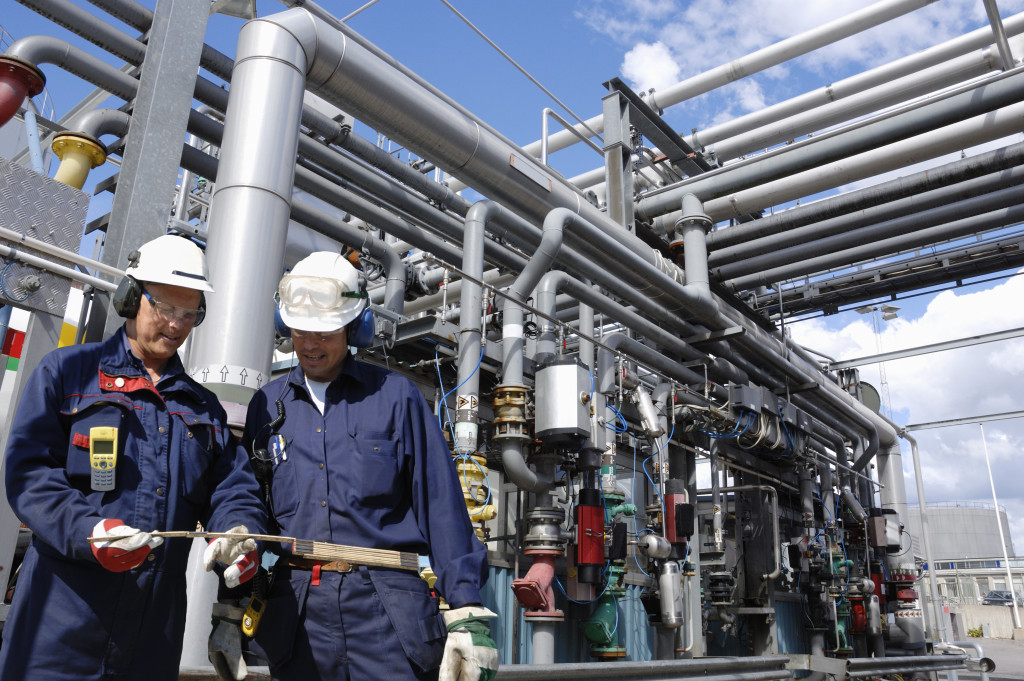- Consider the market demand for natural gas and analyze relevant trends.
- Invest in efficient machinery, compressors, pipelines and tankers, and molecular sieves.
- Ensure compliance with technical and regulatory requirements.
- Identify a location with easy access to natural gas, transportation networks, and skilled labor.
- Finance the venture with banks, investors, or government programs, and develop a risk management plan to minimize operational risks.
Investing in natural gas can be a wise decision for business owners and entrepreneurs who are looking for a profitable investment. Natural gas is one of the most helpful energy sources that can be used to power homes, businesses, and industries. However, before launching a natural gas processing plant or investing in this industry, you need to consider some crucial factors. Here are the factors that you should consider beforehand.
Market Analysis
One of the first factors to consider before launching a natural gas processing plant is the current market demand for natural gas. You need to conduct thorough research to determine if there is a high demand for natural gas in the local or international market.
You should also analyze market trends and projections to determine if the demand for natural gas is expected to increase or decline in the future. This information will help you determine whether investing in natural gas is profitable.
If possible, you should also research the competition in the industry. This will help you identify potential vendors who can provide natural gas at competitive prices.

The Right Equipment & Materials
A successful processing plant requires efficient technology and equipment for extracting, storing, and transporting natural gas from one place to another. Investing in quality machinery that helps you capitalize on energy-saving opportunities throughout your venture is crucial. Here are some of the standard ones to invest in:
Compressors
The compressors in a natural gas processing plant are responsible for compressing the gas to increase its storage capacity and reduce costs. The type of compressor used will depend on the volume and pressure level required in order to store or transport the gas. Compressors can either be reciprocating or centrifugal, each having its own advantages and disadvantages.
Pipelines and Tankers
Pipelines and tankers are used to transport natural gas from the processing plant to other parts of the country. Make sure you build pipelines that meet industry regulations and standards while also being able to withstand extreme weather conditions. Additionally, invest in high-quality tanker trucks that can carry large volumes of natural gas safely and securely.
Molecular Sieves
Molecular sieves are used to remove impurities from natural gas, such as water vapor and higher hydrocarbons. It is vital to invest in efficient molecular sieves that can provide consistent minimal pressure drop, thus reducing the risk of system downtime and costly repairs.

Technical and Regulatory Requirements
Investing in natural gas requires compliance with technical and regulatory requirements. You need to ensure that you have the necessary permits and licenses to operate a natural gas processing plant. You also need to ensure that your plant complies with environmental regulations and safety standards. You may need to hire a team of experienced professionals to ensure that your plant operates smoothly without violating any regulatory requirements. Here are some things you can run through them:
Location and Infrastructure
The location of your natural gas processing plant is another crucial factor to consider. You should identify a site that has easy access to natural gas sources, transportation networks, and skilled labor.
You should also consider the proximity of your processing plant to your preferred market to reduce transportation costs. The infrastructure of your processing plant is also essential. It should be designed to optimize efficiency, minimize waste, and be easily scalable to accommodate future growth.
Capital Requirements
Launching a natural gas processing plant requires a significant amount of capital investment. You need to have a clear understanding of the costs involved and how you plan to finance your venture.
You can seek financing from various sources, such as banks, investors, and government programs. You can also explore partnerships or joint ventures to share the costs and risks of launching a natural gas processing plant.
Operational Risks
Investing in natural gas processing plants comes with some operational risks. You need to develop a comprehensive risk management plan to identify potential risks and how to mitigate them.
The risks include fluctuations in natural gas prices, production downtime, supply chain disruptions, competition, and environmental accidents. You should have a contingency plan to manage and minimize these risks.
Investing in natural gas can be a profitable venture for business owners and entrepreneurs who are willing to take risks. However, before launching a natural gas processing plant, you need to consider the factors outlined in this blog post. You need to conduct a market analysis, comply with technical and regulatory requirements, identify the right location and infrastructure, have sufficient capital for your venture, and develop a risk management plan. By considering these factors, you can make an informed decision and launch a booming natural gas processing plant.
